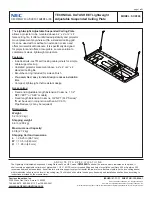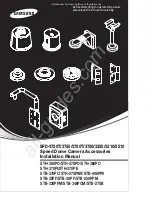
Maintenance and Cleaning of the Visor and Chin Guard Trims
The visor and chin guard trims of the helmet have been designed to seal the space between the visor, the chin
guard and the shell, thus reducing infiltration of air, water and dust, regardless of the conditions of use. For a correct
operation of the trims, a specific liquid lubricant (LUBRI-TRIM) is applied on them in our production lines. However,
the different temperatures, the weather conditions and the dust that accumulates during normal use of the helmet,
cause the evaporation of the liquid lubricant, thus drying the trims. This can reduce their efficiency until they break.
To maintain the trims more effective, soft and elastic, we therefore recommend a continuous monitoring and a
frequent lubrication depending on the more or less intensive use of the helmet, by applying the specific liquid
lubricant included in the LUBRI-TRIM kit as follows:
-
remove the visor from the helmet (see instructions above);
-
open the chin guard and clean any dirt on the trims of the shell and chin guard with water and a soft cloth.
Then dry;
-
apply the liquid lubricant by following the specific instructions especially on the inner surfaces of the side
areas of the chin guard trim (Fig.8A) and on all external surfaces of the side areas of the shell trim (Fig.8B);
-
clean any excess liquid, close the chin guard and reassemble the visor.
•
(Available as an optional accessory)
5.
Inner Visor PINLOCK® Assembly
5.1
Disassemble the visor (see instructions above).
5.2
Make sure that the inner surface of the visor is clean and check that the pin adjustment external levers are
turned inwards (Fig.9).
5.3
Place the PINLOCK® inner visor on the visor.
Warning
: The silicone-sealed profile of the PINLOCK® inner visor must be in contact with the inner surface
of the visor.
5.4
Insert one side of the PINLOCK® inner visor on one of the two visor pins and hold it in position (Fig.10).
5.5
Widen the visor and fasten the other side of the PINLOCK® inner visor to the second pin (Fig.11).
5.6
Release the visor.
5.7
Remove the protective film from the PINLOCK® inner visor and check that the entire silicone-sealed profile of
the inner visor adheres to the visor.
5.8
Fit the visor on the helmet (see instructions above).
Maintenance and Cleaning of the Visor and Chin Guard Trims
The visor and chin guard trims of the helmet have been designed to seal the space between the visor, the chin
guard and the shell, thus reducing infiltration of air, water and dust, regardless of the conditions of use. For a correct
operation of the trims, a specific liquid lubricant (LUBRI-TRIM) is applied on them in our production lines. However,
the different temperatures, the weather conditions and the dust that accumulates during normal use of the helmet,
cause the evaporation of the liquid lubricant, thus drying the trims. This can reduce their efficiency until they break.
To maintain the trims more effective, soft and elastic, we therefore recommend a continuous monitoring and a
frequent lubrication depending on the more or less intensive use of the helmet, by applying the specific liquid
lubricant included in the LUBRI-TRIM kit as follows:
-
remove the visor from the helmet (see instructions above);
-
open the chin guard and clean any dirt on the trims of the shell and chin guard with water and a soft cloth.
Then dry;
-
apply the liquid lubricant by following the specific instructions especially on the inner surfaces of the side
areas of the chin guard trim (Fig.8A) and on all external surfaces of the side areas of the shell trim (Fig.8B);
-
clean any excess liquid, close the chin guard and reassemble the visor.
•
(Available as an optional accessory)
5.
Inner Visor PINLOCK® Assembly
5.1
Disassemble the visor (see instructions above).
5.2
Make sure that the inner surface of the visor is clean and check that the pin adjustment external levers are
turned inwards (Fig.9).
5.3
Place the PINLOCK® inner visor on the visor.
Warning
: The silicone-sealed profile of the PINLOCK® inner visor must be in contact with the inner surface
of the visor.
5.4
Insert one side of the PINLOCK® inner visor on one of the two visor pins and hold it in position (Fig.10).
5.5
Widen the visor and fasten the other side of the PINLOCK® inner visor to the second pin (Fig.11).
5.6
Release the visor.
5.7
Remove the protective film from the PINLOCK® inner visor and check that the entire silicone-sealed profile of
the inner visor adheres to the visor.
5.8
Fit the visor on the helmet (see instructions above).
Summary of Contents for X-1004
Page 1: ......
Page 51: ...Fig 22B Fig 23 Fig 24 Fig 25 Fig 22B Fig 23 Fig 24 Fig 25...
Page 52: ......









































